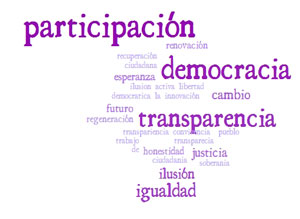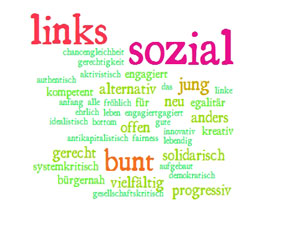‘Wien Anders’, a left-leaning alliance of Austrian parties inspired by the new European Left, aspired to get into the Viennese Parliament. Can their experience be compared to that of Podemos?
On 11 October, the city of Vienna elected a new city council. Much has been and will continue to be written on the rise of the extreme right and its attempts to get into government in Austria’s largest city. However, little attention has been given to the attempts of Wien Anders (WA), a left-leaning alliance of parties, to win the 5% of votes needed to get into the Viennese Parliament.
Can the experience of WA be compared to that of Podemos? Spanish and Austrian political culture is extremely different. More people demonstrate in Spain each year than in any other European country. In 2006, 16% of Spaniards stated that they had attended a legal demonstration. In contrast, only 8% of Austrians stated that they had done the same. That said, only an extremely low percentage of Spanish people (2%) said that they belonged to a political party, whereas in Austria, 11% of the population belonged to one.
On the other hand, Austria is the only country in the EU15 that doesn’t have a party that would be aligned with the European Left in the National Parliament. The same goes for the city of Vienna, whose Parliament is divided into the Greens, the Social Democrats, the Conservatives and the extreme right.
Both Podemos and WA have attempted to carve out different niches for themselves in their respective political arenas. Podemos initially positioned itself as an open and transparent party and as a tool for democratic empowerment. When members of Podemos were asked to define their party in three words, they focused on organisational aspects. The three most-used words were ‘participation’, ‘transparency’ and ‘democracy’ (‘participación’, ‘transparencia’ and ‘democracia). When the same was asked of WA activists, they focused on aspects to do with policy. The words ‘left’ and ‘social’ (‘links’ and ‘sozial’) were by far the most frequently repeated.
PODEMOS defined by its activists Word-tag

WIEN ANDERS defined by its activists Word-tag

Podemos had easy and continuous access to the mass media, especially television. However, WA struggled to attract media attention and had to fight for visibility. WA activists were aware of this and therefore launched an active campaign on the streets to make themselves known to voters.
Juliana Okropiridse (22), WA’s candidate for the elections, was also heavily involved in this campaign. She was able to spend five or six hours on the streets, talking with people about WA. Her skills proved essential during internal council meetings to knit together the different views and approaches of the various parties forming the alliance. Her skills contrast completely with those of Pablo Iglesias, who comes across as extremely convincing on television, but who lacks Juliana’s soft skills.
In the end, Wien Anders only won 1.1% of the votes and did not succeed in getting into the Viennese Parliament. However, as Subcomandante Marcos once said, ‘the struggle is like a circle; you can start anywhere, but it never ends.’ In Austria, the left has learnt some lessons and we are already holding meetings to prepare to take the National Parliament by storm. We will then most likely have to strike a balance between a purely ideological position and new ways of doing politics.